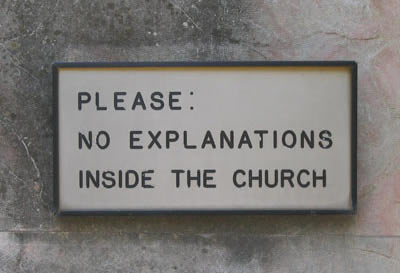by Lois Tverberg
If your eye causes you to sin, pluck it out and throw it from you. It is better for you to enter life with one eye, than to have two eyes and be cast into the fiery hell. Matthew 18:9
Some of the sayings of Jesus are so strong that we wonder if Jesus really wants us to take them literally. Should we really pluck out our eye, as this saying above says? Should we cut off our right hand if it causes us to sin? Is is really better to be drowned with a millstone than to lead a little one astray? Is it really harder for a camel to go through a needle’s eye than a rich man to enter the kingdom of God? Jesus’ overstatements can make us uncomfortable when we aren’t sure how we should take them.
One thing that we should keep in mind is that the practice of exaggeration and giving commands that go far beyond expectations was very much a part of Jesus’ rabbinic culture. In order to underline the importance of what they taught, the rabbis often spoke this way. For instance,
When three eat at one table and words of Torah are not spoken there, it is as if they ate at the altars of the dead… But when three eat at one table and bring up words of Torah, it is as if they ate from the table of God, blessed be He! (Mishnah, Avot 3.2-3)1
The point of this teaching is to emphasize that people should try to always include discussion of the scriptures when they eat together. Likening a meal without Torah study to worshipping in an idolatrous temple is a strong overstatement that is intended for emphasis. Or, here is another example:
Let no one stand for prayer without bowing his head… Even if the king greets you, do not answer him. And even if a snake is coiled at your heel, do not break it off. (Mishnah, Berakot 5.1)
Once again this the importance of concentration in prayer is taught by saying that even in the most extreme circumstances, you should have single-minded attention on God. People took these teachings seriously, but knew they were overstatements for effect.
Knowing this aspect of Jesus’ culture should give us some sense of how Jesus’ words were heard by his audience when he said things like, “Unless you hate your mother and father… you cannot be my disciple” (Luke 14:26). He sounded like many other rabbis who said extreme things to reinforce the importance of their teaching.
We must be careful never to minimize Jesus’ high calling away as exaggeration. But at the same time, we gain wisdom for how to understand Jesus’ words when we have a better idea of how they would have been heard in his time.
(1) The Mishnah is a compilation of sayings of rabbis from before Jesus’ time until about 200 AD, and often is very useful in seeing Jesus’ words in context.
Photo: Normann Copenhagen



